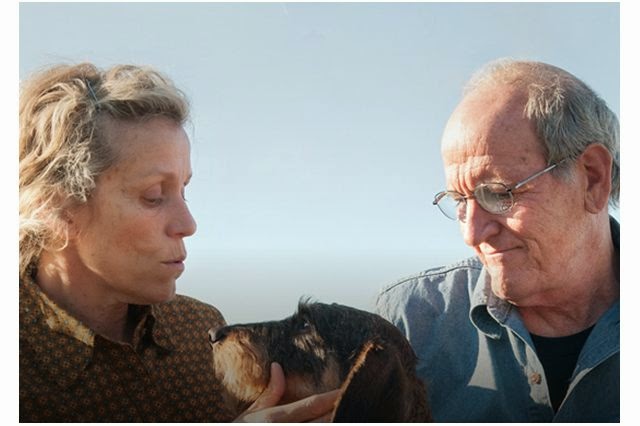A look at depression
“He wanted to put his arms around her, but she had a darkness that seemed to stand beside her like an acquaintance that would not go away.” ― Elizabeth Strout, “Olive Kitteridge”
HBO used to be known for making TV movies, and some very good ones. But in recent years, much like networks that used to make original movies and mini series, HBO has focused on its original dramas and comedies. Now it offers just a few movies and mini series each year. In fact, the last movie that wasn’t a documentary was “The Normal Heart” last Spring.
But on November 2 and 3, HBO offered “Olive Kittridge,” a four hour mini series that aired in two, two-hour installments. The work was based on the collection of short stories from Elizabeth Strout, and it was directed by Lisa Cholodenko, the director behind “The Kids Are All Right.”
The mini series was a fascinating exploration of the character Olive Kittridge, played beautifully by Frances McDormand in an Emmy-worthy turn. It was based on Strout’s work, which was originally a collection of 13 short stories each told from a different point of view. The source material sought to present a picture of Olive through these different lenses.
In just four hours, the film version has to take a different tactic. It’s more of a linear narrative with Olive in the center, jumping through four different slices of her life. At first, Olive seems like an unlikeable character. She’s standoffish, brusk, and doesn’t seem to appreciate those in her life. Her son, Christopher (John Gallager, Jr.), and her husband, Henry (Richard Jenkins), seem to get the worst of it. She is, at times, just plain mean. And in the first episode it looks like Olive is having an affair, one cut short when her potential beau is killed in a car accident.
Through the rest of the three hours, we see Olive’s life play out. The natural human reaction is to wish to see growth and change. To wish to see her softer side. But that doesn’t really happen.
Still, what the four hours do well is tell the story of a woman who was likely battling clinical depression, or a similar affliction, all her life. Olive did what she could to keep herself together, be a wife and a mother, but she wasn’t like other women. And that didn’t mean she didn’t care.
One of the most beautiful parts of the experience, to me, was the sweet moments that showed what was inside Olive. My favorite scene in the mini series came during her son’s wedding. In a quiet moment, after making her typical mess of the day, Olive laid on her son’s bed, looked at his dresser, and saw a carving. It took her back to his childhood, and the joy she felt in that memory was beautiful.
I also thought one of the fascinating relationships was between Olive and Henry. Their relationship wasn’t perfect, and there weren’t a lot of laughs, but through the four hours you could see they deeply loved and cared for one another.
More than anything, “Olive Kittridge” was a beautiful display of a different kind of storytelling, one that is slowly fading from our modern TV calendar. TV movies and mini series can convey powerful stories that are beautifully told. HBO has made many this year, but they’ve made the most of the ones they’ve done.




Comments
Post a Comment